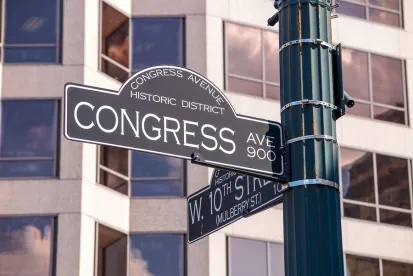After more than 5 years of negotiations between partner countries (Australia, Brunei, Canada, Chile, Japan, Malaysia, Mexico, New Zealand, Peru, Singapore, Vietnam, and the United States), the Trans-Pacific Partnership (TPP) trade agreement was finalized in October 2015 and will be confirmed through a formal signing ceremony on February 4th in New Zealand.
Although the terms of TPP are finalized and formally agreed to, there is still a great deal of work ahead. TPP will not come into effect until a requisite number of original signatories ratify the agreement, probably within a two-year period. For the United States, the formal signing of TPP on February 4 will trigger the process for drafting and consideration of a bill in Congress to implement the agreement, which will also serve as U.S. ratification of the international trade deal. While the Obama Administration has expressed its intent to see a TPP bill passed this year, serious issues with specific terms of TPP must first be resolved, and even then passage is not guaranteed given the highly partisan environment in Washington, D.C., heightened even further in this Presidential election year. Conventional wisdom inside the Beltway is that the soonest Congress would likely vote on the bill is during a lame duck session, following the November elections, but even that timetable cannot be guaranteed.
One key hurdle has already been cleared. Approval of bipartisan trade legislation through both Houses of Congress last July included a reauthorization of Trade Promotion Authority (TPA), also known as “fast-track” authority, which affords expedited consideration of international trade legislation through Congress and precludes any amendments. The enactment of TPA enabled the Obama Administration to successfully conclude negotiations on TPP.
While TPA was a major victory for the President, achieving a vote on the international trade deal before he leaves office will be another uphill battle. Similar to the TPA vote, trade agreements typically rely heavily on Republican support for passage. TPP has been unpopular among many Congressional Democrats, who staunchly believe the trade deal will have a negative impact on American jobs and wages. Securing TPP approval from the Republican majority will require the Administration to resolve several outstanding issues over controversial portions of the trade agreement from key GOP members, including Congressional Leadership. For example, Senate Majority leader Mitch McConnell (R-KY) opposes the agreement’s exclusion of tobacco products from the investor-state dispute settlement mechanism; Senate Finance Committee Chairman Orrin Hatch (R-UT) wants stronger language on market exclusivity for biologics; and House Ways and Means Trade Subcommittee Chairman Dave Reichert (R-WA) opposes the rules that prohibit countries from preventing the free flow of data or forcing local storage of data because they fail to cover financial data.
The Administration will have a difficult time maneuvering these and other specific issues without completely unravelling the years of negotiations with other TPP partners. Outstanding issues could be addressed through side agreements, which are difficult to achieve because they involve additional obligations that must be accepted by all TPP countries after the original agreement has already been signed. These issues could also be addressed by side letters, which are common to trade agreements and are used to clarify specific issues. More commonly, the Administration has addressed issues in its implementation and enforcement plan, and some Members of Congress have even relied on informal commitments from the Administration to address issues, a difficult task under strained relations between the President and Congress.
The path forward on these specific issues is unclear, but in the event of their resolution the Administration will need to work with Congress to reach an agreement on the text of the implementing bill. Pre-agreement on the legislation is essential if the implementing bill is to receive TPA’s “fast-track” consideration through the House and Senate. This process will likely include hearings and “mock markups” by the relevant congressional committees. According to House Ways and Means Committee Chairman Kevin Brady (R-TX) hearings may begin as early as February.
Although the Obama Administration has not identified a specific time-frame for submission of the implementing bill, it has indicated it would like to submit the bill in July of this year, before Congress adjourns mid-July for the two national party conventions scheduled this summer. Timing of the implementing bill’s submission is key, as formal submission will trigger a series of deadlines for Congressional action, ultimately requiring Congress to act within 90 legislative days.
Relevant Congressional Committee staff seem to disagree with the July timing. They have reported that while they are making a deliberate attempt – neither rushing nor obstructing – to work through outstanding TPP issues, they do not believe that these issues can be resolved by the summer.
Even if the outstanding issues could be resolved and an implementing bill drafted by July, the timing of the formal submission will remain sensitive as some Members will be reticent to vote for a trade agreement so close to the November election, where the vote can play into Presidential and Congressional primary and general election politics. Opposition to TPP from high-profile Presidential candidates in both parties has further politicized the debate over the trade agreement. All three Democratic Presidential candidates, Hilary Clinton, Bernie Sanders, and Martin O’Malley, have come out against TPP and the leading Republican Presidential candidate Donald Trump has blasted the trade deal. A lack of support for TPP from potential presidential nominees (who may be at the top of the ticket in November) makes it all the more difficult for incumbent congressional Republicans and pro-trade Democrats to publicly support and vote for a trade agreement during election season.
Consistent with these considerations, several members of House Leadership staff have indicated that the soonest the Congress would act on the implementing bill this year is during the lame duck session following the November elections. But even then, consideration of an implementing bill will not be free of opposition. Some conservative members of Congress may object to a vote in the lame duck session on the principle expressed by Senator and Presidential candidate Ted Cruz: “No conservative would want a bunch of members who have just been defeated or [are] retiring passing big government liberal policies with Obama in office. TPP needs to be voted on when members are accountable.”
Kaitlyn McClure is co-author of this article.




 />i
/>i

